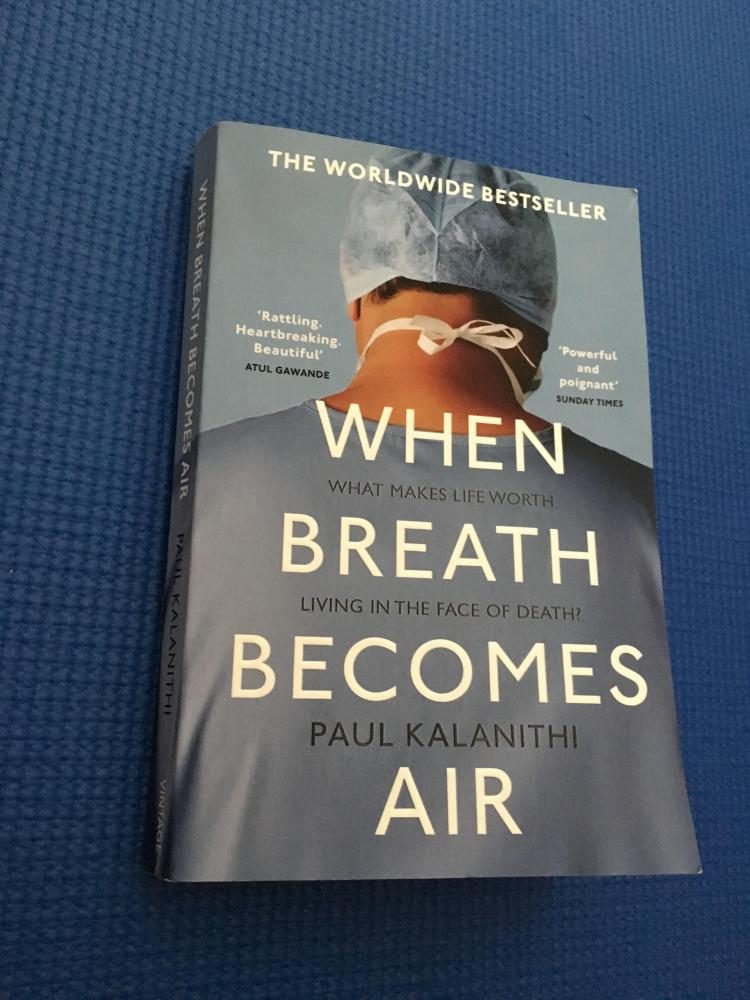Book Review: When Breath Becomes Air
May 9, 2017
I read Paul Kalanithi’s posthumously published When Breath Becomes Air, in one intense sitting. Short yet stunning, I found myself enraptured in the beauty and meaning of his work. I would comb over lines of text and put the book down, just so I could pick it up again and attempt to revisit it with the same sense of novelty I had felt when I first read the words; so I could feel that spark of inspiration, the gears of sated comprehension clicking into place. It roused my buried inquiries, curiosities, notions, and transcended them into newfound wonder. Kalanithi offers two unique yet correlated perspectives – that of a doctor (specifically a neurosurgeon), and of a patient. He explains the reason he became the former; that is, to explore the meaning of life. “Neurosurgery seemed to present the most challenging and direct confrontation with meaning, identity, and death.” What better way, he thought, to discover the weight and worth of life and death, than to work in direct proximity to it? But, as he gradually came to realize, “being so close to the fiery light of such moments only blinded me to their nature, like trying to learn astronomy by staring directly at the sun.” He had sought a profession in the medical realm because he wanted to understand the esoteric aspects of life and death, but reducing so many people to organ and tissue blinded Kalanithi from their humanity. Slowly, he began to amend this. He would regard his patients with not only technical, but emotional, proficiency.
When he was diagnosed with lung cancer, Kalanithi realized how debilitating it really was to be the “direct object,” especially having previously been “the subject.” His insight on this transition was heartbreakingly authentic. Nevertheless, his humor spiked the book at the most fitting times (usually embedded within parentheses), although always seeming to contribute more to his overall message than to mere comic relief.
Kalanithi’s descriptions were remarkable. I’ve never been so enraptured by surgical procedure – it didn’t matter that the name of every illness I came across was foreign to me; the subsequent explanations were more than sufficient. I enjoyed the inclusion of an epilogue, written after Kalanithi’s death by his wife Lucy, because of how effective it was at tying loose ends, and how honest it was, much like her husband’s portion of the book. I think that’s what I appreciated the most from When Breath Becomes Air: the honesty of Kalanithi’s thoughts. Perhaps it is because it was accompanied by “the urgency of racing against time, of having important things to say. Paul confronted death – examined it, wrestled with it, accepted it – as a physician and a patient. He wanted to help people understand death and face their mortality.” The candor was refreshing. Kalanithi has lived what most would consider a meaningful life, even if he spent much of it trying to understand what exactly that is; and he has left yet another piece of significance, this time a work of art, in his wake.




